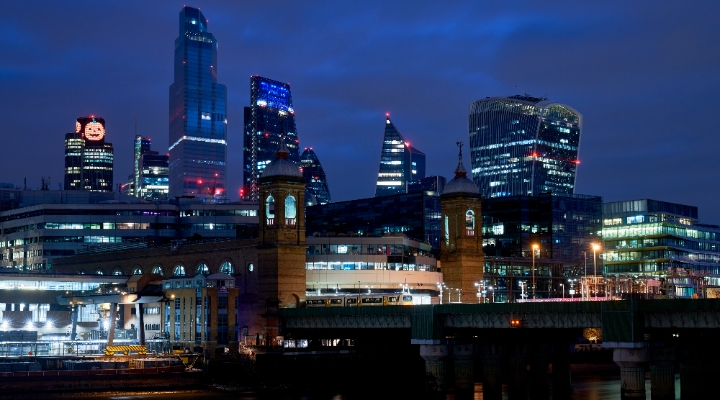
The FTSE 100 rose this morning ahead of the general election tomorrow as optimism that the US Federal Reserve will cut rates in September fed through to markets.
In a speech yesterday, Federal Reserve chair Jerome Powell said he was confident US inflation was on a downward trajectory, though he declined to give any specific guidance on when the US's central bank might first cut rates.
Back in the UK, this morning International Consolidated Airlines Group (IAG), Fresnillo (FRES) and Barclays (BARC) all rose by 3.35%, 3.35% and 3.04%, respectively. Mining companies also benefited from the hopes, with BHP (BHP) and Glencore (GLEN) both rising by 1.8% and 1.5%, respectively.
However, the biggest fallers were JD Sports Fashion (JD), 3i Group (IGQ), and Compass Group (CPG), which dropped –2.04%, -1.05%, and 0.7% respectively. Over the last trading days, the UK blue-chip index is down by just -0.72% overall.
Polling opens tomorrow morning in the UK, and will last all day as voters decide on the next government. In a note published today, analysts at Goldman Sachs predict the Labour Party, which is well ahead in the polls, will have limited "fiscal headroom" to carry out its raft of manifesto commitments. As a result it may have no choice but to increase taxes, alongside a slightly slower winding down of government debt held at the Bank of England.
"Labour plans to follow the same fiscal rules as the current government, resulting in limited fiscal headroom in the manifesto," the analysts said.
"That said, Labour would likely have to increase spending by £14 billion a year more than assumed by the end of the parliament to prevent departments' spending from falling in real, per capita terms. Much of this could be financed through lower accounting losses from the BoE's asset purchase facility, either via a reduced pace of quantitative tightening or a redefinition of the fiscal rule.
"But further modest tax increases would likely be required to leave headroom at current levels, with media reports suggesting that capital gains and inheritance taxes could be raised. Our models suggest that these policies would boost demand by about 0.3% over the forecast horizon relative to currently announced policy, versus 0.2% based on the manifesto policies."
The Labour Party's manifesto commits it to significant capital expenditure in support of economic growth and plans to "green" the UK's economy. The plans include a £1.8 billion injection of funding to upgrade the UK's ports and "build supply chains across the UK", as well as £1.5 billion to build "new gigafactories" for the automotive industry. The Party also pledges £2.5 billion to rebuild the UK's steel industry and a further £1 billion to accelerate the development of carbon capture.
Analysts at DBRS Morningstar, the ratings agency, say there are opportunities in this policy set, as well as sgnificant risks.
"Despite a change in government from Conservative to Labour, we expect a Labour government to follow prudent economic policies, with the potential of boosting growth," they said yesterday.
"In its manifesto, Labour has pledged ambitious plans to grow the economy and step up clean energy, while returning public finances to a sound position. Although further details on concrete policies are yet to be presented, we see execution risks in Labour's plans, largely because of the scale of the investment needed.
"Moreover, poor effectiveness of the plans could lead to lower-than-expected growth, with adverse implications for the fiscal outlook. Other risks could come from a failure to attract private investment and the external environment, including geopolitical risks and weak external demand."








.jpg)





















